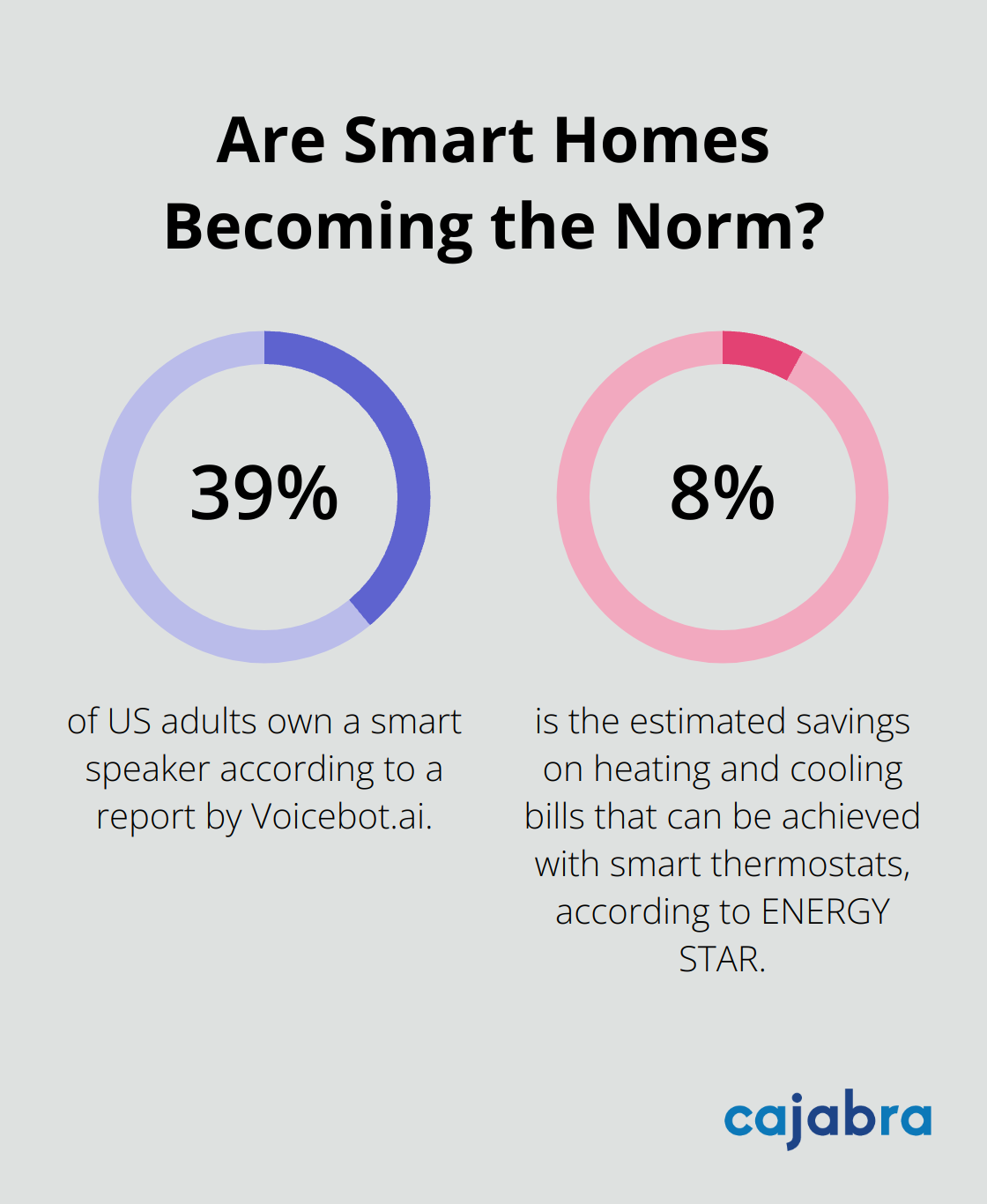
Automated systems in everyday life have become an integral part of our world. From transportation to our homes and workplaces, these technologies are reshaping how we live and work.
At Cajabra, LLC, we've witnessed firsthand the transformative power of automation across various sectors. In this post, we'll explore the far-reaching impacts of these systems and consider both their benefits and challenges.
The transportation sector is undergoing a radical transformation, with automated systems leading this change. These innovations reshape how we move, commute, and navigate our cities.
Self-driving cars are no longer a futuristic concept but a present reality. AI in self-driving cars works to avoid human errors, offering potential for improved safety on the roads. While the technology is promising, public acceptance remains a challenge that needs to be addressed through continued education and gradual implementation.
Smart traffic management systems transform how cities handle traffic flow. These systems use a variety of technologies to monitor and respond to traffic conditions in real time, reducing congestion, improving safety, and decreasing emissions. Smart Cities are leveraging these innovations to optimize their transportation networks.
Automation in public transportation enhances efficiency and reliability. In Copenhagen, the Metro runs without drivers, operating 24/7 with 98% of trains arriving on time. This level of consistency is difficult to achieve with human operators alone.

Moreover, automated ticketing systems and real-time tracking apps make public transport more user-friendly. London's Oyster card system processes over 17 million journeys per day, which significantly reduces queues and improves the overall passenger experience.
These transportation innovations can significantly impact how businesses operate and how clients interact with services. For accounting firms looking to modernize their practices, considering these transportation changes might provide valuable insights and opportunities for advisory services.
As we move from the roads to our homes, we'll explore how automation is transforming our personal spaces and daily routines.
The concept of home automation has evolved from a luxury to a necessity, transforming our interaction with living spaces. Smart homes allow you to make daily tasks even easier, streamlining your chores and providing convenience to a hectic life.
Voice-controlled assistants (Amazon's Alexa, Google Home, and Apple's Siri) have become central hubs in many households. These AI-powered devices manage everything from lighting and temperature to entertainment and shopping lists. A report by Voicebot.ai indicates that 39% of US adults own a smart speaker, showcasing the rapid adoption of this technology.

These assistants change our approach to daily tasks. Setting reminders, checking the weather, or ordering groceries can now happen hands-free, saving time and increasing productivity. This shift benefits busy professionals, including accountants, who can use these tools to streamline their personal lives and focus more on work.
Smart home devices play a crucial role in reducing energy consumption and promoting sustainability. Smart thermostats (like those from Nest or Ecobee) learn from habits and automatically adjust temperature settings for optimal comfort and efficiency. ENERGY STAR estimates that smart thermostats can save approximately 8% on heating and cooling bills or $50 per year, with potential for greater savings depending on climate and personal comfort preferences.
Smart lighting systems can significantly cut electricity usage. Some systems allow users to control lights remotely and set schedules, potentially reducing energy waste. Others integrate with motion sensors, ensuring lights only activate when needed.
The integration of AI and machine learning in home automation will deepen. Predictive maintenance systems for home appliances, AI-driven security systems, and more sophisticated energy management tools are on the horizon.
For accounting professionals, understanding these trends isn't just about personal convenience. It's about staying ahead of the curve in advising clients on technology investments and their potential tax implications. As smart home technology becomes more prevalent, it may also open up new avenues for specialized accounting services related to home office setups and energy-efficient upgrades.
As we transition from our smart homes to our workplaces, we'll explore how automation is reshaping the professional landscape and impacting job roles across various industries.
Workplace automation rapidly transforms the professional landscape, reshapes job roles, and redefines productivity across industries. This shift impacts various sectors, including accounting firms. As of September 2024, nearly 70% of workers see automation as an opportunity to transition into higher-skilled roles.
Manufacturing has experienced a significant shift towards automation. The global operational stock of industrial robots reached 3.5 million units in 2021 (International Federation of Robotics). This trend reshapes factory floors, with robots taking on repetitive and dangerous tasks.

Amazon's fulfillment centers employ over 200,000 mobile robots, which work alongside human employees to improve efficiency. These robots handle tasks like moving heavy items and sorting packages, allowing human workers to focus on more complex operations that require decision-making skills.
AI-powered customer service systems become increasingly prevalent. As of October 2024, 84% of executives use AI technology to interact with clients, and 88% believe automated systems for quick resolutions boost user loyalty.
Bank of America's virtual assistant, Erica, has served over 17 million customers since its launch in 2018. Erica can handle a wide range of tasks, from scheduling payments to providing account information, freeing up human agents to deal with more complex inquiries.
Office environments do not escape the automation wave. About 60% of occupations could see at least 30% of their constituent activities automated (McKinsey report).
For accounting firms, this means embracing tools that automate data entry, reconciliation, and even some aspects of financial reporting. Software like Xero and QuickBooks now offer AI-powered features that can categorize transactions and reconcile accounts automatically.
However, this doesn't mean accountants become obsolete. Instead, their roles evolve. They now provide more strategic advice, interpret complex data, and offer insights that machines can't replicate.
Accounting firms that embrace automation can free up time for higher-value services. The JAB System™ by Cajabra, LLC helps firms leverage these technological advancements to attract and retain clients who look for more than just number-crunching.
As workplace automation continues to evolve, professionals across all industries must adapt and upskill. The future belongs to those who can work alongside machines, leveraging their strengths while providing the human touch that no robot can replicate.
Automated systems in everyday life have transformed our world, reshaping how we move, live, and work. From self-driving cars to smart home devices and workplace robots, automation has become an integral part of our existence. These advancements offer clear benefits: increased safety, improved efficiency, and enhanced convenience.

However, challenges accompany these innovations. Job displacement concerns persist as machines take over routine tasks, while privacy and security issues arise with increased use of smart devices. The future of automation seems boundless, with expectations of more sophisticated AI systems and further integration of IoT devices.
For businesses, particularly in accounting, embracing automation is necessary for survival and growth. Cajabra, LLC offers specialized marketing services to help accounting firms leverage these technological advancements. Their JAB System™ and tailored solutions enable accountants to focus on high-value services while automating routine tasks.



